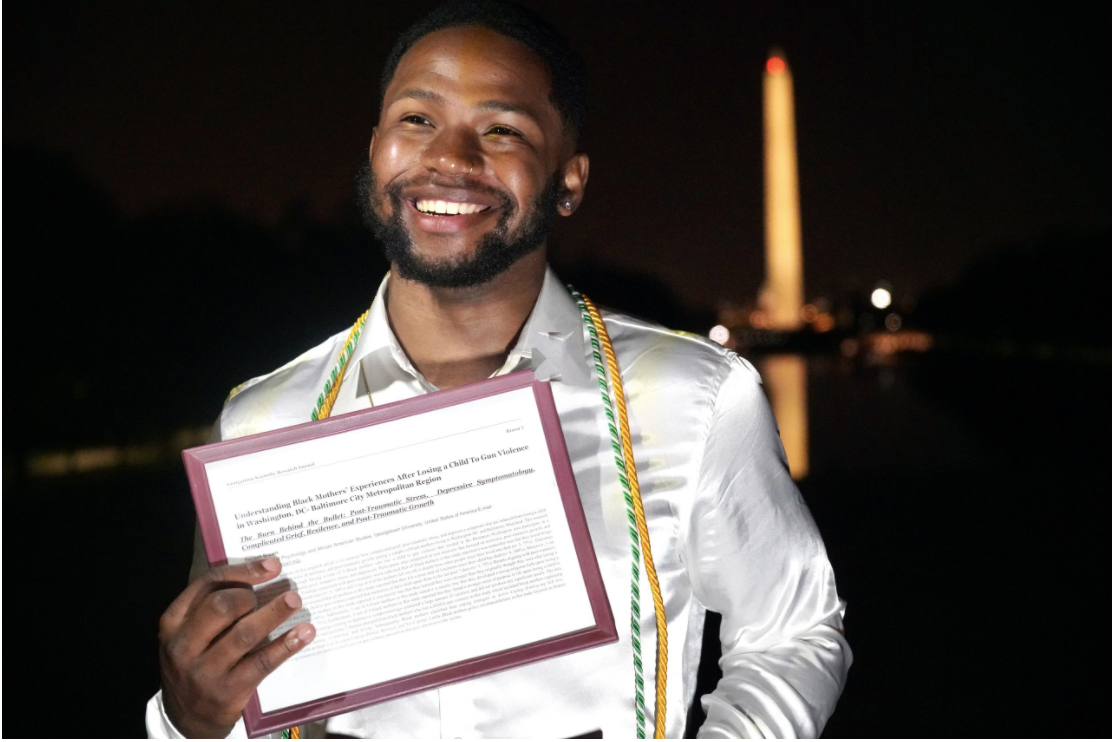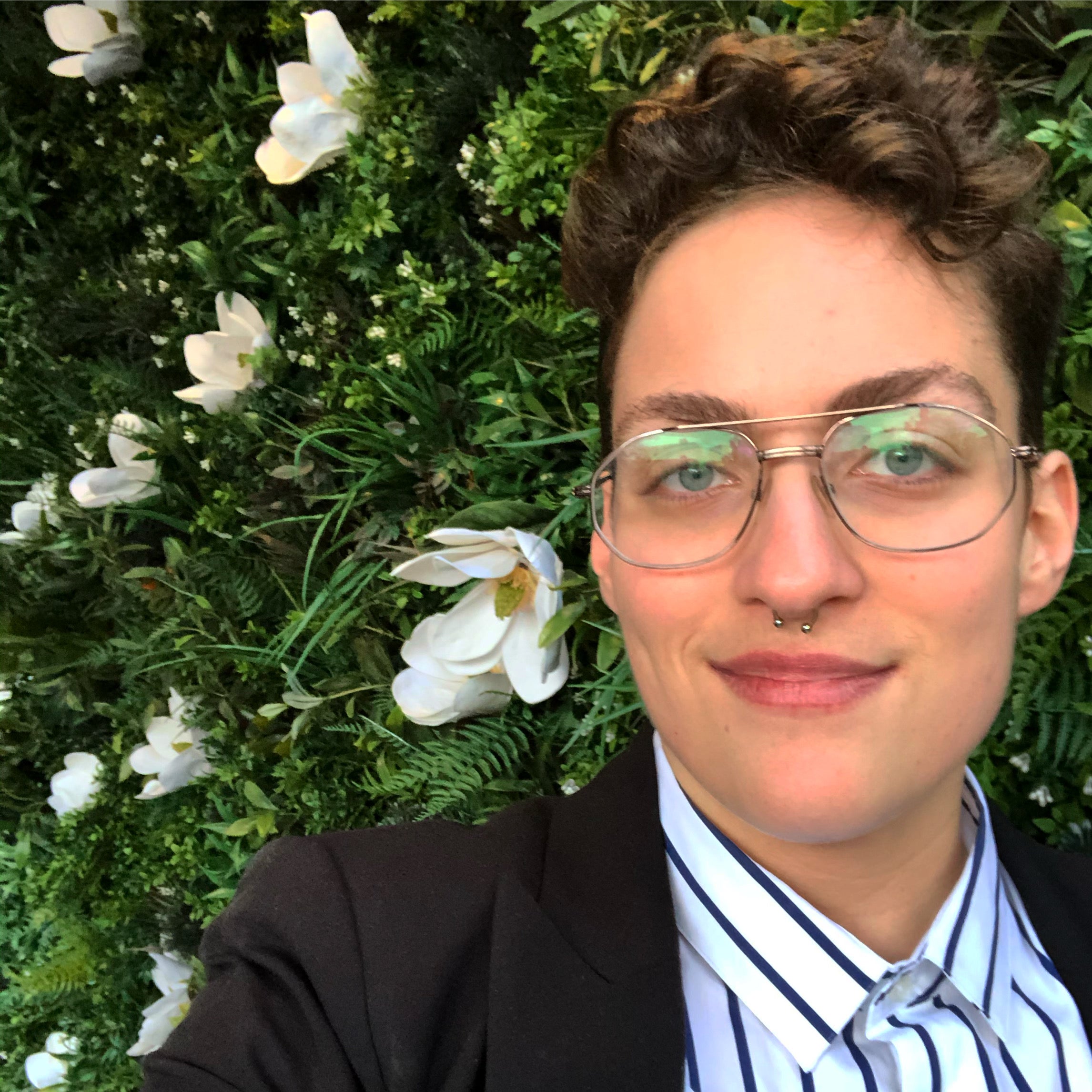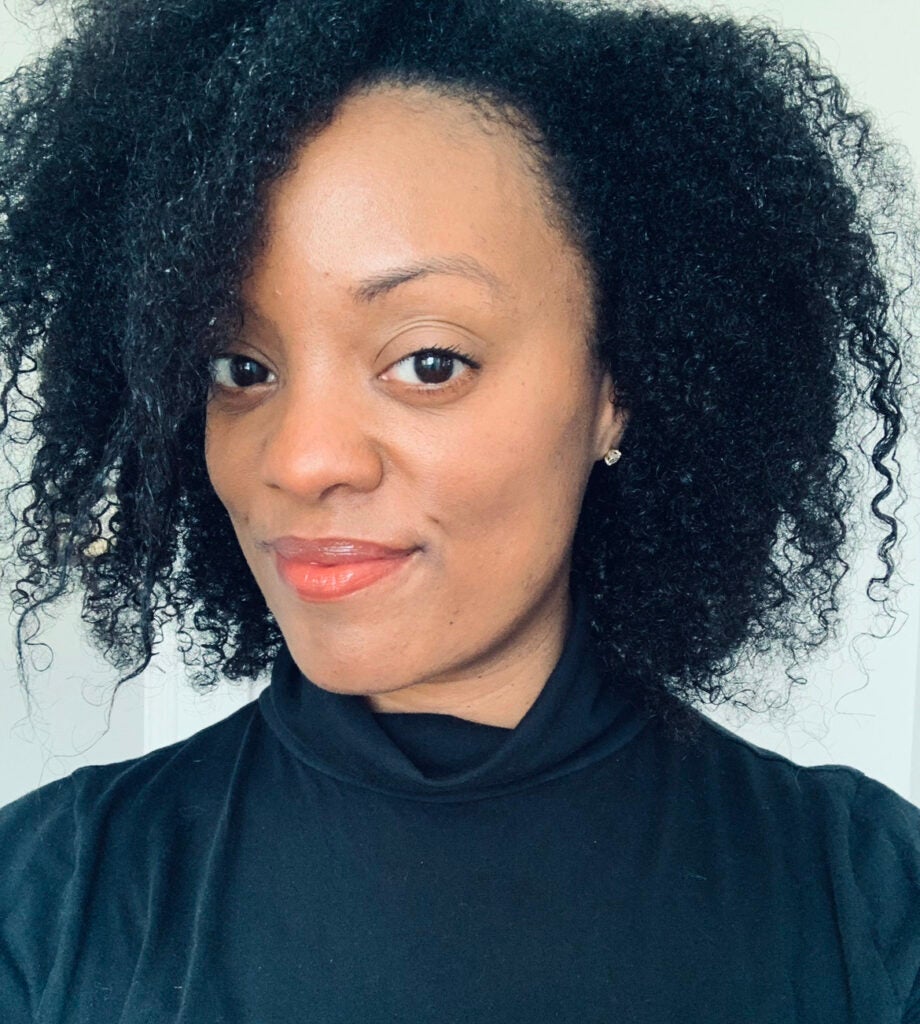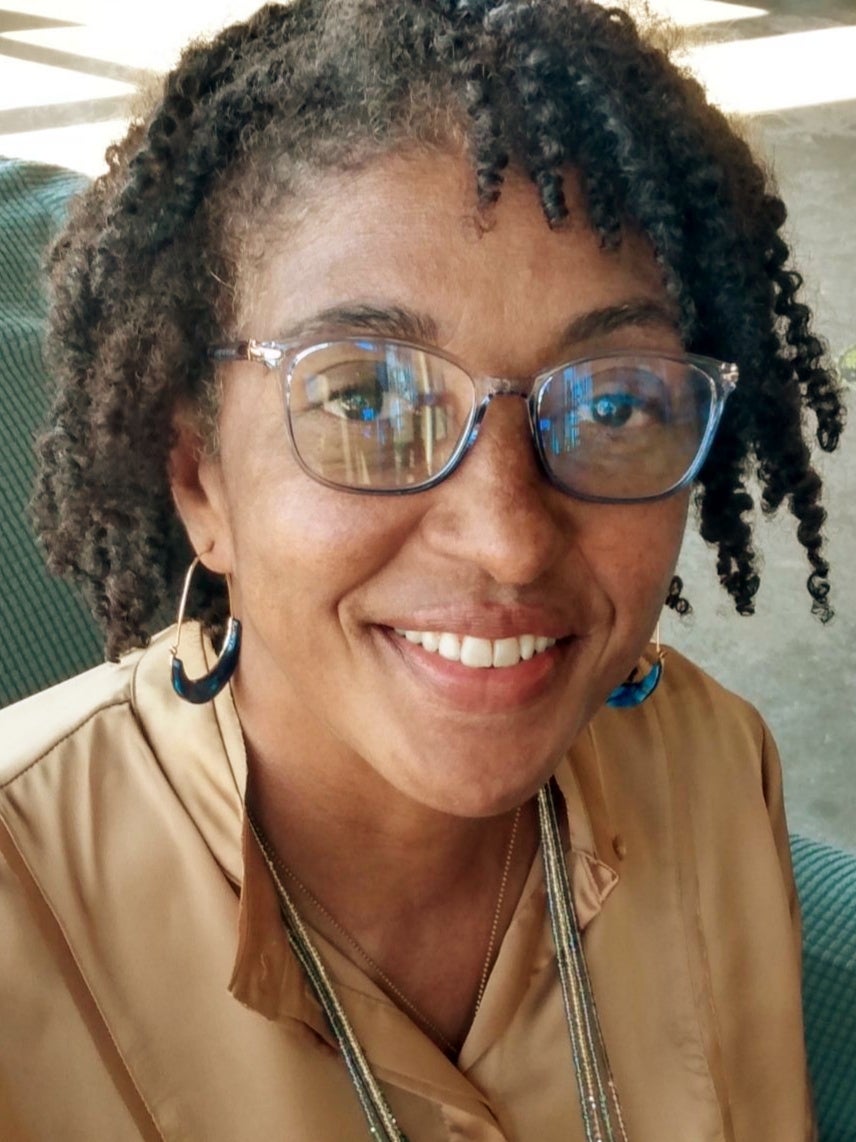LEND TRAINEE PROFILES

2026 – Hari Kannan

Hari is 23 years old and has spent his life in North Potomac, Maryland. He participates actively in the community and advocates for inclusion of people with disabilities. As an individual with Down syndrome, he has worked toward being included in educational and community settings. Hari has an interest in fitness and aims to support others in staying healthy. He also enjoys music, socializing, and traveling with family.
1. Why were you interested in joining GULEND?
I participated in a IPSE event at Georgetown last year and I had the opportunity to meet Jalyn Marks and Dr. Pamala Trivedi. When Dr. Trivedi reached out about the LEND program, I was very interested. This gives me an opportunity to improve my advocacy and share the perspectives of someone with a disability.
2. What do you hope to gain from being a GULEND trainee?
I am hoping to become a better advocate and develop my leadership skills. I am also interested in meeting the other trainees and other members of the program. I am hoping the program will increase my confidence working within the community to build awareness.
3. How has GULEND impacted your understanding of disability?
In the classes I have been in so far, I am learning a lot of things about disability and some of it has been emotional. We heard from a mom with a son with a disability and it was very emotional. I thanked my parents that evening for being there for me.
4. How do you hope to use what you learn in GULEND in your future work?
My goal is to speak about inclusion for people with disabilities in schools, sports, jobs, and in our communities. Everyone matters, everyone in this life has a gift to share with the world. The GULEND program will help me develop my advocacy skills and how to reach the community effectively.
2025 – Denzell Brown

1. What brought you to the GULEND program?
My experiences with conducting individual therapy with inner-city African American youth who were enrolled in 504 plans and individual education programs led me to become interested in the GU-Lend program. The GULEND program offered me the opportunity to further educate myself on how sociocultural factors such as race, gender sexuality, religion, spirituality, and socioeconomic status intersects with ableism.
2. What do you hope to gain from being a GULEND trainee?
As a GULEND trainee, I hope to expand my ability to incorporate interdisciplinary practices in my therapeutic work with disabled people. I hope to collaborate with multiple care providers to create an ecosystem of access, responsiveness, and a continuum of care for disabled clients from historically oppressed backgrounds.
3. How has GULEND impacted your understanding of disability?
Access intimacy is a vital concept that has further shaped my understanding of disability. Access intimacy is a feeling that is derived from people making an intentional effort to acknowledge, understand, anticipate, and respond to one’s needs. This concept led to me recognize how institutionalized forms of ableism often restrict and deny non-disabled individuals from fostering connections with disabled individuals’ humanity. Therefore, as an aspiring psychologist who intends to work with disabled children and adults, I will devote myself to standardizing practices that center access intimacy at the core of my work.
4. How do you hope to use what you learn in GULEND in your future work?
I hope to utilize the information I have learned about oppression narratives related to disability to combat and deconstruct ideologies related to ableism. I aim to use the social and diversity model to pursue disability justice outcomes. I will strive to normalize disability as a natural part of human experiences and acknowledge how neurodiversity can be an aspect of one’s identity that can be appreciated.
Denzell Brown is the founder of Brave Behind the Bullet. Mission: The Brave Behind the Bullet Organization provides Black parents who lost children to gun violence in the DC metropolitan area with psychological resources, legal advocacy support, and trauma-informed yoga classes. We offer free individual and group therapy sessions, restorative justice meetings, opportunities to testify to the city council, and trauma-informed and grief-restorative yoga sessions.
2024 – Stevie Mays

1. Why were you interested in joining LEND?
I first started learning about LEND many years ago from a mentor, who raved about the quality content departed on trainees. As well, the Association of University Centers on Disabilities (AUCD) Network itself, composed of disabled academics, clinicians, and care workers, is a network that aligns my values, education, and practice.
Additionally, applying to join Georgetown’s LEND through the cultural competency and linguistics lab was a perfect fusion of my work experiences working with non-speaking autistic folks, as well as giving me access to education regarding cultural competence, something I will bring with me to professional and personal settings.
2. What do you hope to gain from LEND?
I hope to gain from LEND, and have already started too, a greater understanding of the resources available and programming provided to support people with disabilities. I also am excited to expand my knowledge base on AAC (augmentative and alternative communication) application, education, and who is teaching folks how to use such.
3. How has being in LEND impacted your understanding of disability?
The most transformative lessons so far have been the intersection of racism and sexism and how that inherently ties into ableism. I didn’t know how the historical practices of forced enslaved folks were tied to presumed incompetence and the intersection of racist and ableist this was. I also didn’t know historically women to be considered of low intelligence were forced castrated. The historical context of ableism is critical to understanding what ableism looks like today. My previous understanding of disability history was so white and male-focused, I’m beyond grateful to have expanded from these views in the historical context and to have learned how marginalized identities intersecting lead to the unright justification of harm to such communities.
From a more personal perspective, I think about the reframing and value of care workers. Social workers, Early Childhood educators, respite workers, and even parents themselves are talked about with the highest reverence of respect. Unfortunately in our current society, this work is conducted without a doctorate degree, and is too often not given the respect it should, though within LEND it is given the respect it deserves.
4. How do you hope to use what you learn in LEND in your future work?
First and foremost, I want to carry with me the respect taught to care workers and give that level of respect to other care workers. Additionally, I want to continue growing my understanding of cultural competence to ensure I am in the best position to serve the communities I’m serving––which naturally will be outside of the identities I carry. Finally, GULEND does an excellent job of bringing in local Community Partners, and I will want to continue to stay connected and knowledgeable about organizations serving their community well, to then pass these resources on to the families I’m working for.
2023 – Leigh Sims

1. Why were you interested in joining LEND?
After becoming a mother, my 15 years as an early childhood educator in a school building became a different type of challenge. Beyond the challenge of working in a world that often felt like a silo, I found myself craving a different intellectual stimulus, which led me to EI (Early Intervention). The relationships I missed out on making while being in a classroom were quickly made up as I worked with parents. It was the relationships with fellow parents that catapulted me to deepen my knowledge and hone my craft––after all, parents were depending on me to understand their needs and deliver knowledge. It was at that juncture that I made an intentional effort to get to know the community around me, which led me to LEND.
2. What do you hope to gain from LEND?
I hope to be challenged by my colleagues, and more reflective on my work as it relates to where I am going as a practitioner. My hope is that in 20, 30 years I am able to lean on the people I’ve met and the knowledge acquired in LEND.
3. How has being in LEND impacted your understanding of disability?
My understanding of disability has widened and deepened. I am constantly reminded that there are many spokes on the wheel of learning to be added as time goes on. I also realize that everyone has an opinion about any given topic and that, depending on your station in life, your values or thoughts on a topic may not ever align with someone else’s. It is within that space of difference that an incredible learning opportunity exists.
4. How do you hope to use what you learn in LEND in your future work?
While there are many formal opportunities to use what I have learned in LEND I am most appreciative of personal moments of discomfort followed by growth; it is my hope that I become really familiar with this cycle of discomfort and growth to become a better person, community member and practitioner.
2022 – Karla Reid-Witt

1. What brought you to the LEND program?
When I attended my first AUCD conference about 4 or 5 years ago, I learned about LEND. For me the best part of the conference was going to the LEND Poster presentations, seeing the research, and talking to the LEND trainees about their projects. Their ideas were refreshing. Afterward, I looked into becoming a LEND trainee. I learned that although Georgetown University once had a LEND program, it no longer existed. I made inquiries into programs in other states but didn’t get much of a response. I thought it would never happen. Then last summer, I heard that the GUCEDD was taking applications for a new LEND cohort. There was no question that I would apply.
2. What do you hope to gain from being in LEND?
I have been a special education advocate for almost 20 years. I work with parents of children with special needs. Special education advocacy requires a wide breadth of knowledge. I was very confident in my knowledge about education and law but wanted to improve my knowledge and understanding of the healthcare system. I thought the LEND program was exactly what I needed to meet that goal. Also, most of the special education advocacy work I have done, I have done alone. I knew that in the LEND program I would get to participate in a shared experience. I looked forward to being around a group of people working toward the same goal.
3. How has being in LEND impacted your understanding of disability?
It has expanded my exposure and knowledge just as I had hoped. We have covered numerous topics in great detail that I knew very little about previously. Everyone in my cohort plays a different role in the disability support continuum and I get the benefit of their expertise. A major focus of our LEND program is learning to function as an interdisciplinary team. Thinking of the work in this way is much more effective and efficient and will change the way I approach things moving forward.
4. How was your experience in being part of the Georgetown Advisory Council Meeting?
I love being on the Georgetown Advisory Council Meeting. Our major focus is to support the development of the GUUCEDD’s five-year plan. Although the 5-year plan is the priority, my favorite part of being on the Georgetown Advisory Council is the people. The UCEDD staff is great. They have been very helpful to me and my family over the years and are a wealth of information and great advice. Through participation in the Advisory Council, I not only get to support the work of the UCEDD, I also get to hear from disability government and community leaders and give input on their work.
